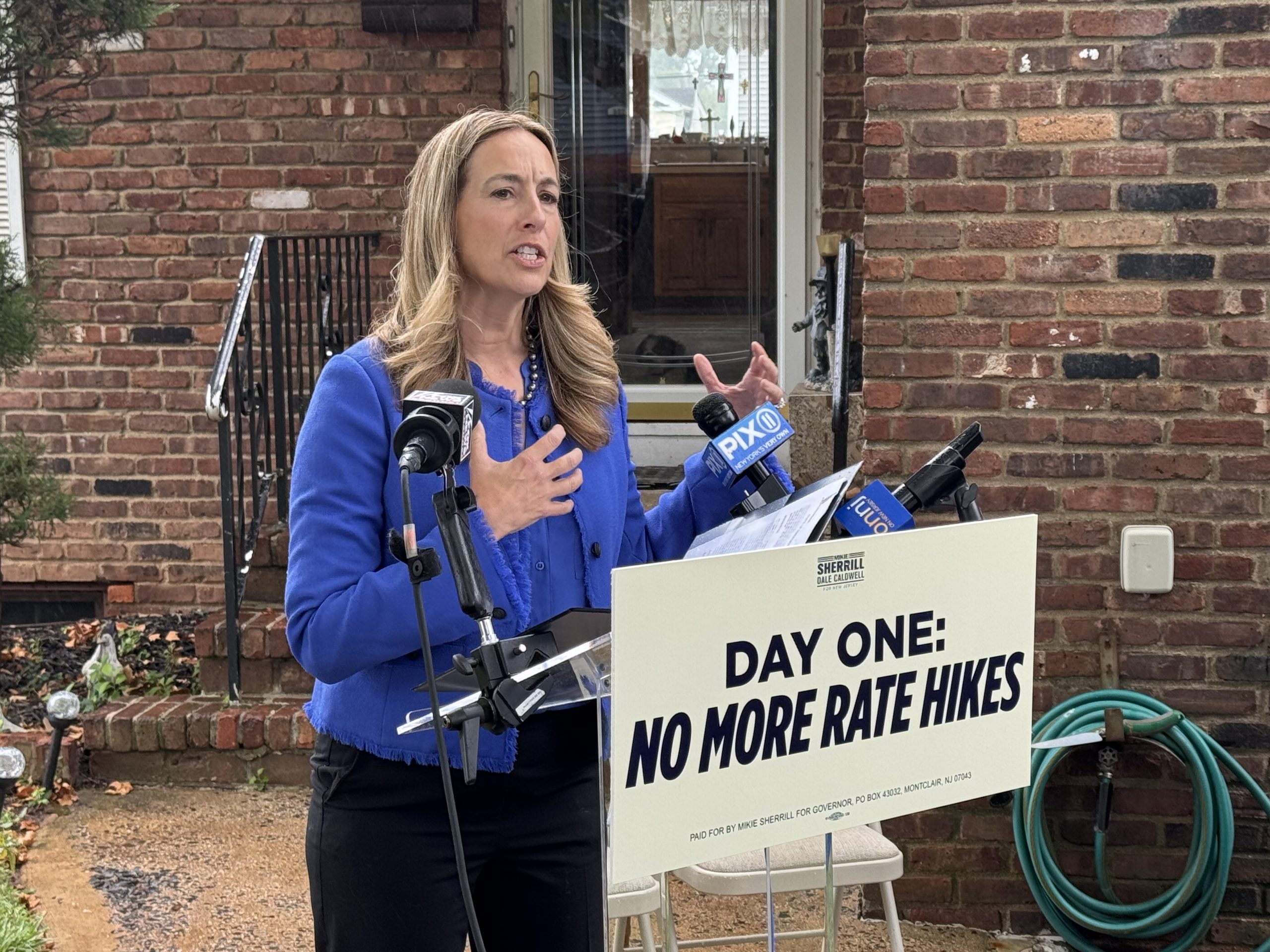The race to become New Jersey’s next governor has taken a sharp turn into the issue that’s hitting nearly every household: the cost of keeping the lights on. With electric rates climbing across the state, Democratic nominee Congresswoman Mikie Sherrill unveiled a bold plan in August to freeze electric rates for one year if she is elected. But just days later, sitting Governor Phil Murphy cast doubt on how such a plan could realistically be implemented, drawing attention not only to the policy itself but also to divisions within the Democratic Party heading into November’s election.
For the latest updates on politics across the Garden State, visit our New Jersey Politics section.
Sherrill’s Proposal: A Freeze on Day One
On August 20, 2025, Mikie Sherrill pledged that if elected governor, her first executive action would be to declare a state of emergency over utility rates. The order would lock electric prices in place for one year, giving residents relief from ongoing hikes while her administration seeks longer-term reforms.
Her campaign argues that New Jersey families are being “squeezed from every angle,” and that immediate action is necessary to keep energy affordable. By hitting pause on rates, Sherrill says households will have time to breathe while the state works with regulators and energy providers to find solutions.
Rising Electric Costs Across New Jersey
The backdrop to this debate is the steady rise in power bills throughout 2025. PJM Interconnection, the regional energy grid operator that serves New Jersey and much of the Mid-Atlantic, has steadily increased rates. Many residents have already noticed higher monthly bills, fueling frustration across income levels.
Energy costs have quickly become a flashpoint issue in the gubernatorial race, with voters demanding answers on how candidates plan to balance affordability, reliability, and the state’s clean energy goals.
Governor Murphy’s Response
Two days after Sherrill’s announcement, reporters asked Governor Phil Murphy about the plan. His response was blunt:
“I’m not sure how you’d actually do that.”
Murphy pointed out that private utility companies control much of New Jersey’s energy market, raising questions about whether a governor has the authority to unilaterally freeze rates. His comments were widely interpreted as an unusual public rebuke of his party’s nominee. Some political observers described it as Murphy “throwing Sherrill under the bus” at a crucial moment in her campaign.
While Murphy has signed legislation to improve transparency at PJM and hold energy providers more accountable, he has been cautious about making promises that could be legally or practically difficult to enforce.
Ciattarelli and the Republican Counterpoint
On the Republican side, nominee Jack Ciattarelli has seized the opportunity to frame rising utility bills as the result of Democratic energy policies. He has consistently argued that Murphy’s clean energy push—including investments in offshore wind and solar—has contributed to higher costs for consumers.
Ciattarelli’s campaign has promised a more market-driven approach, one that he says would balance affordability with environmental goals, though critics argue his plan lacks details on how to address climate concerns while lowering rates.
The Political Stakes
With election day just months away, the debate over utility rates has quickly become one of the defining issues of the campaign. Sherrill’s proposal positions her as a candidate willing to act boldly to protect working families, but Murphy’s skepticism gives opponents ammunition to question whether her plan is realistic or merely symbolic.
The political tension highlights a larger challenge for Democrats: uniting their message in a high-stakes election while addressing real economic pain points for New Jersey voters. Meanwhile, Republicans are eager to use every rate hike as a reminder of what they see as Democratic mismanagement.
What It Means for New Jersey Residents
No matter which side of the debate voters stand on, the outcome of this election could directly impact household budgets in 2026 and beyond. With energy affordability, reliability, and clean energy expansion all at the forefront, residents are paying close attention to whether candidates can deliver more than campaign soundbites.
New Jersey’s next governor will not only need to address the immediate reality of high bills but also chart a sustainable long-term path for energy policy—one that ensures fairness for residents while keeping the state on track toward its environmental goals.
Final Thoughts
The conversation sparked by Sherrill’s electric rate freeze proposal goes beyond politics—it speaks to the everyday struggles of New Jersey families. With Murphy openly questioning the feasibility of her plan and Ciattarelli pushing a contrasting message, voters now face a stark choice on how the state should approach energy policy moving forward.
As November draws near, one thing is certain: the price of power has become one of the most powerful issues in New Jersey politics.
Stay up to date with more election coverage in our Politics section












